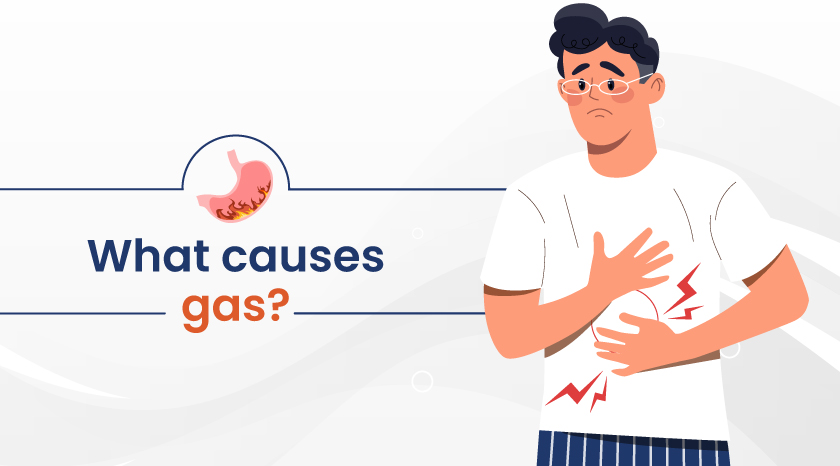Gas, an entirely normal part of the digestive process, can sometimes become a source of discomfort and embarrassment. Understanding the factors that contribute to gas production is the first step towards finding relief and restoring digestive ease. This blog explores the common culprits behind gas and offers practical insights on maintaining a balanced digestive symphony.
- Dietary Choices:
Culprit Profile: Consuming certain foods that are known to produce gas during digestion.
Digestive Impact: Fermentation of these foods by gut bacteria leads to gas formation.
Restoring Balance: Identify and limit gas-producing foods, including beans, lentils, broccoli, cabbage, and carbonated beverages. - Swallowing Air:
Culprit Profile: Ingesting air while eating, drinking, or talking.
Digestive Impact: Accumulation of air in the digestive tract contributes to gas.
Restoring Balance: Adopt mindful eating habits, chew food thoroughly, and avoid using straws or talking while eating. - Bacterial Fermentation:
Culprit Profile: Normal breakdown of undigested food by bacteria in the colon.
Digestive Impact: Bacterial fermentation produces gases such as carbon dioxide, methane, and hydrogen.
Restoring Balance: Consider probiotics to support a healthy gut microbiome and promote efficient digestion. - Digestive Disorders:
Culprit Profile: Underlying conditions such as irritable bowel syndrome (IBS) or small intestinal bacterial overgrowth (SIBO).
Digestive Impact: Imbalances in gut bacteria or disrupted digestive processes can lead to excessive gas.
Restoring Balance: Seek medical evaluation for a proper diagnosis and follow treatment plans as advised by healthcare professionals. - Constipation:
Culprit Profile: Infrequent or difficult bowel movements, leading to stool accumulation.
Digestive Impact: Stool retention can contribute to gas production.
Restoring Balance: Promote regular bowel movements by increasing fiber intake, staying hydrated, and engaging in physical activity. - Lactose Intolerance:
Culprit Profile: Inability to fully digest lactose, the sugar found in dairy products.
Digestive Impact: Undigested lactose ferments in the colon, producing gas.
Restoring Balance: Limit or avoid dairy products, consider lactase supplements and choose lactose-free alternatives.
Gas is a natural part of the digestive process, but when it becomes bothersome, identifying the culprits can pave the way for relief. By adopting mindful eating habits, considering dietary choices, and addressing underlying digestive issues, you can achieve a more harmonious and comfortable digestive symphony. Remember, a balanced digestive system is key to overall well-being.





